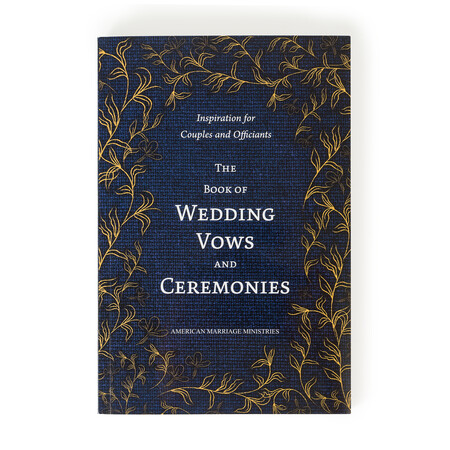Officiants Need to Communicate
If you've got a ceremony coming up, it's time to start planning! The first thing you need to do is schedule a couple important meetings with your couple: an initial check-in and a follow-up as the wedding approaches. Communication is essential throughout this process, and there are a number of responsibilities to be divided up. Learn how to ensure a great outcome by following these tips.
The Initial Check-In
Plan on an initial check-in meeting to coordinate with your couple. They will have plans for the ceremony, and you will need to work together to figure out how to make those plans a reality.
Traditionally, the minister is responsible for composing a couple's wedding ceremony, from traditional texts, scripture, etc. But today, many couples who ask a friend to officiate have a specific and personalized vision for their ceremony, and want to choose the words themselves. If that's your situation, don't get lazy. You still need to know the ceremony's length, tone, timeline, etc.; and that's why it's important to get all of this out of the way, well in advance of the ceremony.
For the initial meeting with your couple, we strongly recommend that both partners be there - and that no mothers, planner, friends, etc. be present. The ceremony should be representative of your couple, both of them, and not their friends and family with the strongest opinions. So make sure this meeting happens early and get everyone on the same page. You don't want to find out that you'll be officiating a theme wedding at the last minute!
Lock It In, A Few Weeks Out
As the ceremony approaches, it's time for at least one more follow-up meeting. This is the time to confirm that the ceremony is ready to go, and make plans for any remaining tasks. At this point, you should already understand the tone that your couple is going for, so an in-person meeting is less critical.
You must ensure that the entire ceremony has been written; the procession, recession, and other ceremony events should be worked out; and your couple will need plans to pick up a marriage license. Confirm the essentials, and allow yourself time to talk through anything that's unclear. You don't want to be working out details as the ceremony is about to start.
This meeting is also a chance for everyone to try out their different lines. While we advise the couple to read their vows for the first time during the ceremony, it's fine to try out a reading or portions of the ceremony, to see if the tone is right. It will be clear if a reading is too long, or if certain phrases don't make sense in context. For example, if you're officiating a same-sex wedding, you may catch gendered phrases that don't fit the couple.
Just Stay in Touch
What it all boils down to is: stay in touch. The more you communicate with your couple and work collaboratively on the ceremony, the less these meetings will feel like huge events. A check-in & followup are the minimum we recommend to avoid disaster.





